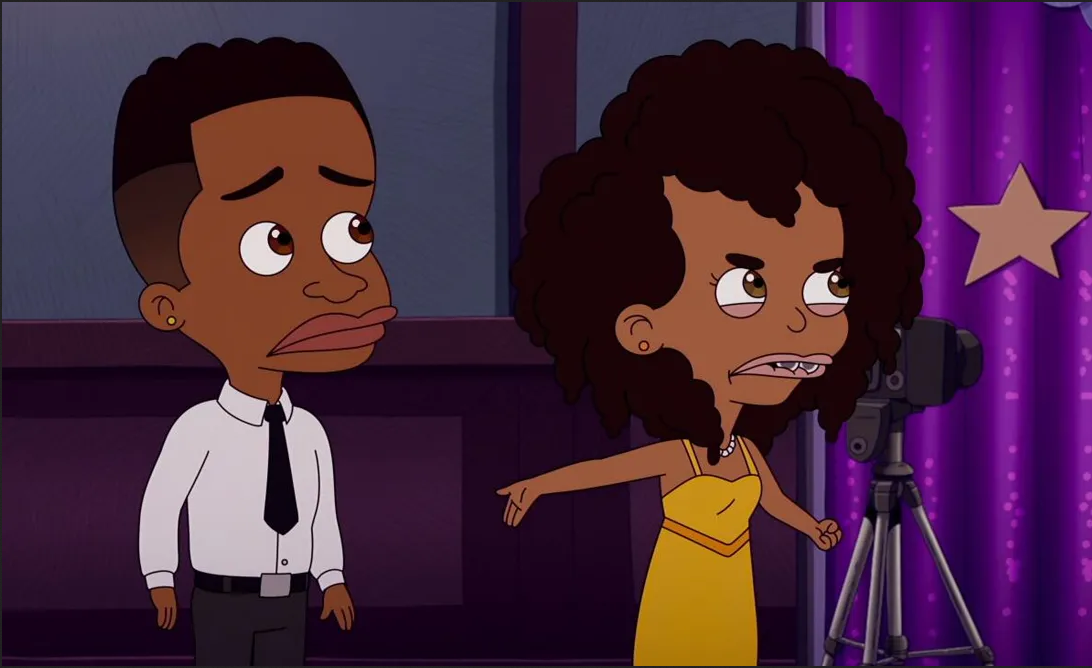2SLGBTQIA+ representation is rising, but the media still has a huge blind spot for those identifying as asexual

Bigmouth via Netflix.
Statistics released by the Gay & Lesbian Alliance Against Defamation (GLAAD) have shown that, in general, representation of LGBTQQIP2SAA+ people in film and TV is increasing, but not for everyone. Those who self-identify as either asexual or aromantic (ACE/ARO) still rarely see themselves represented on-screen.
GLAAD, the US-based organization dedicated to more inclusive and diverse media representation of LGBTQQIP2SAA+ individuals, reported that of the 637 characters they assessed within network TV, film, and streaming series, just two were portrayed as ACE/ARO: Greta Moreno from HBO Max’s Genera+ion, a show the network has since axed, and another character from a streaming series (GLAAD was unable to confirm the name in the report due to a press embargo). These numbers reveal that, when it comes to individuals who see themselves as ACE and ARO, the media representation isn’t just poor, it’s non-existent.
Asexuality and aromanticism have seemingly simple definitions. Asexuality is when one experiences little to no sexual attraction and aromanticism is when one experiences little to no romantic feelings towards others. However, in reality, they encompass a broad spectrum of individuals. Some asexual individuals may still experience libido but not attraction and some may still have sexual intercourse. Aromantic folks may still form emotional bonds, some may go on dates, and others may have romantic relationships.
Unfortunately, historically, representations have sometimes been harmful or offensive. In a 2012 episode of House MD, “Better Half”, in which House treats a married couple who identify as asexual, the negative portrayal of ACE/ARO individuals is painfully visible. Leave it to Greg House to surmise bluntly, “The only people who don’t want [sex] are either sick, dead, or lying.” While treating the couple, House discovers a tumor that explains the husband’s lack of sexual desire. As for his partner? Apparently she was fibbing.
Though House MD has long been off the air, it is still widely available on streaming services. It remains true that exposure to these damaging portrayals at a formative age can deeply harm and hurt individuals who are still coming to terms with their identity. The episode highlights a common misconception about asexuality: that individuals who identify this way are deceiving themselves or others due to a lack of available partners or lack of skill in attracting them. It also suggests that their asexuality has a medical or pathological cause that can be “fixed.”
In other cases, ACE/ARO fans have identified with a character, only to have their hopes dashed by writers. A popular example is the Big Bang Theory’s Sheldon Cooper, whom, early in the show’s run, many assumed to be asexual due to his expressed lack of interest in sexual relationships. When Sheldon and his long-time partner Amy had sex later in the show’s run; some were upset by the writers’ implication that Sheldon’s sexuality was “a problem that could be corrected”.
For some this could be invalidating, reinforcing the idea that Sheldon just “hadn’t met the right person”, a common misconception. However, as Danielle Corcione wrote for Esquire, Sheldon and Amy having sex doesn’t mean Sheldon’s identity suddenly changed, commenting that “asexuality is also a spectrum”.
With such complexity in sexual identities, you could suggest that it’s better not to write an ACE/ARO character at all than to get it wrong and perpetuate harmful stereotypes. However, this is a vicious cycle where erasure could result in a lack of awareness or even doubt that these sexualities are real. According to the parasocial contact hypothesis, engagement with representation of marginalized groups in the media can reduce negative prejudices in society.
More anecdotally, when positive representation exists, people rejoice — they can see someone like themselves on screen reinforcing what they are going through.
Bojack Horseman featured Todd Chavez, a character whom many in the ACE/ARO community praised for finally showing their experience in a nuanced manner. Later seasons of the show portrayed Chavez dating as an asexual. At the time, voice actor Aaron Paul described the positive reception the character received, telling Buzzfeed that many fans had told him that Todd’s journey to come out as asexual helped them navigate their own.
In late 2022, season six of Netflix’s Big Mouth introduced viewers to Elijah, a character who identifies as ACE, dedicating an entire episode to his exploration of his identity. However, with just five ACE/ARO TV characters reported on by GLAAD in 2022, it’s evident this is just a drop in the vast media ocean.
The saddening rise in hate crimes against LGBTQQIP2SA+ individuals, which saw a dramatic increase in 2019, up 41 per cent from the previous year. Calling for positive representation in TV and film may be only part of this equation, but with people’s lives at stake, it seems like a minimal demand.







